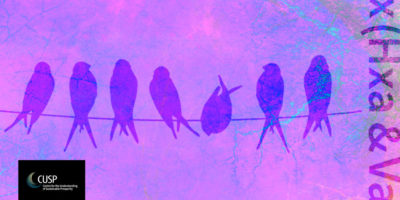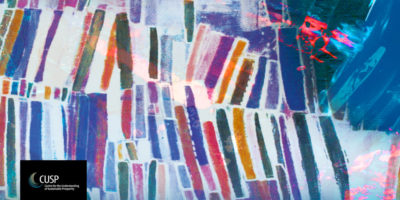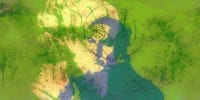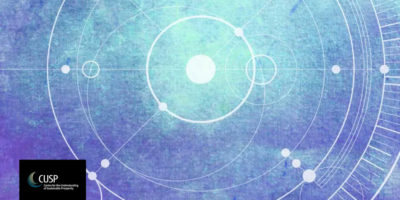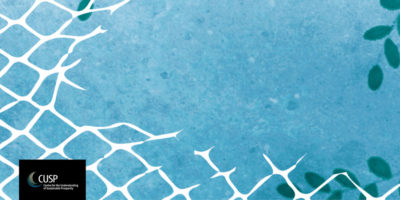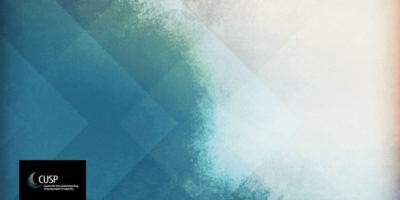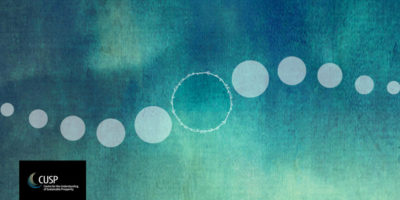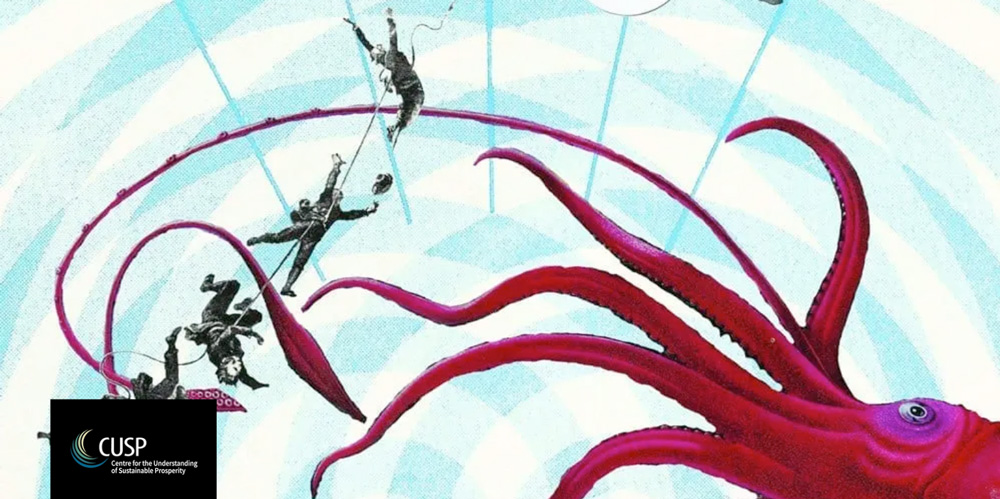Bildung in the 21st Century—Why sustainable prosperity depends upon reimagining education
Dr Jonathan Rowson, Perspectiva
CUSP essay series on the Morality of Sustainable Prosperity | No 9
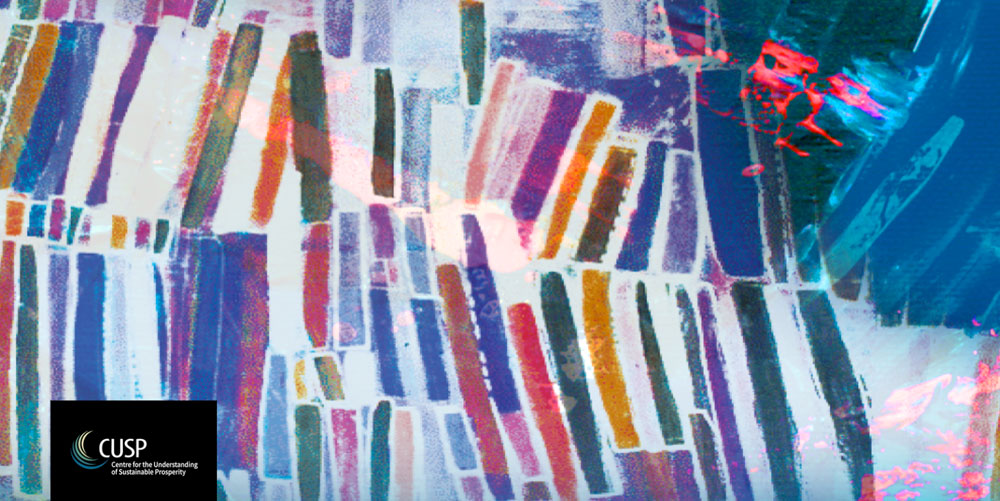
Bildung is a Germanic term with English and Greek roots and Nordic and American fruits. It describes a sense of fulfilling one’s nature or purpose in response to the challenges of a particular historical and societal context. Bildung entails a dynamic world view that values independence of mind and spirit grounded in ecological and social interdependence. The premise of this essay is that we need to reconsider Bildung today because the challenge of ‘understanding’ in Understanding Sustainable Prosperity is pivotally important. The complexity of the world is overwhelming the complexity of our minds, and addressing that challenge is fundamental to our attempts to create a viable and desirable future. Our understanding of the world is not a spectator sport, but more like an active ingredient in societal renewal. Bildung is about our responsibility for and participation in an evolving process of social maturation that reimagines culture, technology, institutions and policies for the greater good.
Bildung is a Germanic term with English and Greek roots and Nordic and American fruits. The word does not sit comfortably in English, but it means something like transformative civic education. The direct translation is ‘formation’ and the original includes elements of education, enculturation and also realisation; the sense of fulfilling one’s nature or purpose in response to the challenges of a particular historical and societal context. The composite meaning of the term is difficult to break down into elements without losing its permeating reference, and grasping the concept requires a particular way of seeing the relationship between the individual and society and a related view of learning. Bildung entails a dynamic world view that values independence of mind and spirit grounded in ecological and social interdependence.
The premise of this essay is that we need to reconsider Bildung today because the challenge of ‘understanding’ in Understanding Sustainable Prosperity is pivotally important. The complexity of the world is overwhelming the complexity of our minds, and addressing that challenge is fundamental to our attempts to create a viable and desirable future. Our understanding of the world is not a spectator sport, but more like an active ingredient in societal renewal. Bildung is about our responsibility for and participation in an evolving process of social maturation that reimagines culture, technology, institutions and policies for the greater good.
If this essay has a single intellectual forebear, it is probably Jon Amos Comenius, Czech philosopher and theologian who lived from 1592 to 1670 and declined the offer to be President of Harvard University; he is considered by many to be the father of the idea of universal or democratic education. Comenius’ genius lay in grasping that since learning is as natural as breathing or eating or sleeping, education should be seen as an aspect of nature’s formative process; and since nature is often experienced as sacred, and we are part of nature, an organism’s lifelong disposition to learn is the wellspring of meaning and purpose in life. A healthy society that is attuned to nature and other sources of intrinsic value depends upon making this educative process the axis upon which society turns.[1]
A healthy society that is attuned to nature and other sources of intrinsic value depends upon making this educative process the axis upon which society turns.
The strength of the case for Bildung today depends on drawing attention to the relationships between the (ecological) crisis of our time and the crisis of understanding within it; and prioritising the growth of one type of complex system (human beings) over another (economies). In the early 21st century, the boundaries between education, culture and technology are increasingly blurred, which means reimagining education is one of many entry points into how we might reimagine everything else too. Today, learning is often commodified as an instrumental good as part of the human capital theory of education, shaped by the prevailing orthodoxy of today: neoliberalism—described by Will Davies as the state-led remaking of society along the model of the market. We are living mostly sub-specie economicus—under the aspect of economics. Perhaps what we need today, in Comenius’s language, is a method to move towards living sub specie educationis, which requires remaking society under the aspect of a transformative view of education, supported by the state, but led by civil society, namely Bildung.[2]
Our institutional and intellectual challenge is as much about reconceiving education as rethinking economics; indeed, these explorations depend on each other. Just as the prevailing view of what the economy could be is limited by an inflexible grasp of salient reference points: money, banks, jobs, growth; so our educational imagination is constrained by existing institutions and our own school experience—a limitation compounded by narrow policy debates about exam results in the first quarter of our lives.
Today, learning is often commodified as an instrumental good as part of the human capital theory of education, shaped by the prevailing orthodoxy of today: neoliberalism.
My focus is therefore not on education as it is currently conceived, but on how a cultural ethos and educational praxis, Bildung, could refashion the institutions and purposes of society. In academic terms, the underlying question is characterised by interdisciplinary ambition: how might a psychologically informed philo-sophy of education enrich new economic thinking? In more applied terms, the aim is generative synthesis: how might the cultivation of our inner lives help initiate and sustain an ecologically sane societal transformation in a world of accelerating technological change? And to put it more plainly, as a cri de cœur, what’s the point of life in a world that’s on fire?
Becoming the change we want to see in the world
In his 2014 essay, Spirituality and Intellectual Honesty, German philosopher Thomas Metzinger offers the following dark prognosis:
“Conceived of as an intellectual challenge for humankind, the increasing threat arising from self-induced global warming clearly seems to exceed the present cognitive and emotional abilities of our species. This is the first truly global crisis, experienced by all human beings at the same time and in a single media space, and as we watch it unfold, it will also gradually change our image of ourselves, the conception humankind has of itself as a whole. I predict that during the next decades, we will increasingly experience ourselves as failing beings.”[3]
Failing beings? At the end of the eighteenth century, about three quarters of the world were in some kind of bondage, slavery or serfdom, few were educated, torture and war were widespread, and many died young. In light of the economic, scientific and emancipatory progress humanity has made over the last few centuries, if we are to be failing beings, it will be because we are too slow to detect that our success is laced with failure. It is difficult to say just how bad our ecological predicament is, and how much worse it will get, because both judgments are about social and ecological resilience grounded in scientific, technological and political probabilities and varying appetites for risk. Nonetheless, when we consider that we are continuing to transgress a range of the planet’s ecological boundaries, that water and food insecurity is growing, that coastal cities could become submerged this century (Louisiana in the USA is already losing an area of land the size of a football pitch every 45 minutes to sea level rise) and there is reasonable chance of complete societal collapse within decades if not years, we appear to be a paradoxical civilisation: successful yes, but in an apparently suicidal way.[4]
Our failure is therefore epistemic and spiritual in nature. In Japanese Pure Land Buddhism humans are described as Bombu, foolish beings of wayward passion. In the Christian tradition there is the doctrine of original sin, which Francis Spufford characterises not in terms of ‘yummy transgressions’ but more fundamentally as ‘the human propensity to fuck things up.’ In secular psycho-dynamic terms, we are deluded. As a species we are defined by our failure to perceive, appreciate, understand and emotionally engage with an economically globalised world in a way that allows us to make the decisions we would take if we were wise. Many people think, for instance, that the climate crisis was born in the scientific naivety of the industrial revolution, but more than half of all industrial CO2 emissions have been released much more recently, since 1988, the year the Intergovernmental Panel on Climate Change was created. As the Neo-Confucian Philosopher Wang-Ming put it: ‘To know and not to act, is not to know.’[5]
As a species we are defined by our failure to perceive, appreciate, understand and emotionally engage with an economically globalised world in a way that allows us to make the decisions we would take if we were wise.
To restore ecological sanity with the commensurate speed, scale and discernment, we have to learn how to know in a new way, and that way should give us some sense of direction and hope. At its substantive best, sustainable prosperity reframes what prosperity means through macroeconomic critique, a sound theory of human nature, an acceptance of ecological constraints and a renewed societal purpose based on a philosophy of the good life. However, the meaning of sustainable prosperity is perhaps the main active ingredient in the transition, and the one that has been relatively neglected. Feeling the need for a vision of sustainable prosperity, and taking responsibility for what the transition from here-to-there entails, all requires some kind of belief in and contribution to political leadership, democratic consent and global cooperation. Any such shared transition story involves asking a critical mass of people to make that story their own, which in turn depends upon perceiving and understanding how global systems interact with the competing values and perspectives within them—an exacting challenge.
Most of the qualities of heart and mind in question, like how well we learn to perceive and feel and know differently, our capacity to question our assumptions, our inclination to empathise with strangers, to relate wisely to what is old and new, to perceive the relationship between parts and wholes; these are not optional extras for the transition to a better world. The challenge is that such qualities are mostly dispositional rather than propositional in nature; they are about our habitual and habituating tendencies, our values orientation, our patterns of attention; the kinds of things that we lack conceptual resources to talk about but which are nonetheless shaped and reinforced in unhelpful ways in educational systems built for human capital formation within a collapsing paradigm. If we accept that a new economic model needs a related philosophy of the good life, we should also accept that the challenge of building and living that good life in a global, digital and ecologically compromised context entails a related praxis of education. Our task is not so much to “be the change we want to see in the world”, primarily an individualistic and behavioural injunction that Gandhi never said. Our task is rather to become the change we want to see in the world; to embark on a shared cultural and educational adventure commensurate with the civilizational challenges of our time.[6]
Bildung
The 3rd Earl of Shaftesbury, Anthony Ashley Cooper, was taught by John Locke from a young age, but he appears to have been less of an empiricist, going on to influence the German-speaking intelligentsia of the late seventeenth century. Ashley-Cooper was the first to emphasise the importance of ‘inner Bildung’, our inner formation, not merely for its own sake, but because the nature and quality of our inner formation (and realisation) is reflected in ‘outer Bildung’ in the systems and structures of society, and their nature and purpose. What makes this notion different from a more generalised emphasis on flourishing or virtue development is that the active ingredient of Bildung is not about nice-to-have character traits like humility or honesty, but a deeper inquiry into how we know, a thorough metapsychology concerned with the combined experience of perception, emotion, thinking, valuing, meaning-making and embodied skill that Shaftesbury grasped as being generative of the formation of society.[7]
To restore ecological sanity with the commensurate speed, scale and discernment, we have to learn how to know in a new way, and that way should give us some sense of direction and hope.
In the Nordic countries of Denmark, Norway and Sweden, catching on from the 1850 onwards, Bildung was historically a form of self-organised civic education through the creation of folk schools by “schoolmen”, pastors, wealthy farmers, professors and wealthy members of the bourgeoisie who wanted to contribute to the education of the lower classes.[8] By 1900 there were about 100 in Denmark, 75 in Norway and 150 in Sweden, all programs lasting three to six months, and focussed on small-group methodologies for 20 to 40 people, in which conversation, the Socratic method and the relational process between people were as important as any instruction received. The schools entailed practical lessons in farming for peasants in anticipation of technological change, indirectly creating skilled workers in the new industrialized economy, but primarily giving people a sense of identity, political awareness and meaning-making capacity they would not otherwise have had.
What sets Bildung apart is that these schools were driven by teachers with a sense of calling, with lessons set in nature and designed for individuals to evolve emotionally, spiritually, morally, and intellectually, with communities and institutions pro-actively created for this purpose. This solidaristic and eudemonic spirit, combined with the cultivated sense of responsibility towards their country, may have been instrumental in building the high levels of social trust that underpin the prosperity and wellbeing of those countries today. Around the same time, Bildung came to American soil from along with the German Idealist philosophy and the German system of higher education. The so-called American Renaissance (1840-1890) and related transition to American ascendency in culture and world influence coincided with a general infusion of Bildung as a cultural ethos.[9]
Our task is not so much to “be the change we want to see in the world”, it rather is to become the change we want to see in the world.
The authors of The Nordic Secret, Lene Rachel Andersen and Tomas Bjorkman argue that Bildung lies at the heart of their story of how the Nordic countries developed from poor agrarian and mostly authoritarian societies, to affluent, stable and relatively happy social democracies. They encapsulate the idea as follows:
“Bildung is the way that the individual matures and takes upon him or herself ever bigger personal responsibility towards family, friends, fellow citizens, society, humanity, our globe, and the global heritage of our species, while enjoying ever bigger personal, moral and existential freedoms. It is the enculturation and life-long learning that forces us to grow and change, it is existential and emotional depth, it is life-long interaction and struggles with new knowledge, culture, art, science, new perspectives, new people, and new truths, and it is being an active citizen in adulthood. Bildung is a constant process that never ends.”
To give the concept further texture, Bildung’s philosophical foundations are informed by both biological and theological perspectives, and the unsuspected links between them. In the terminology of psychosocial therapist Indra Adnan, humans are viewed as bio-psycho-social-spiritual organisms; that perspective is grounded in a theory of organismic unfolding expressed in scientific psychology about how humans can and do develop and self-regulate throughout the lifespan. However, the swiss genetic epistemologist Jean Piaget, most associated with psychological development, was not a psychologist, and saw the unfolding process in question as transdisciplinary. For instance, in his book Structuralism he wrote: “So we can speak of self-regulation, but only at the risk of its being confused with life itself.” And although Piaget sought to be strictly naturalistic and scientific in his professional life, in his early diaries, when considering the process philosophy of Henri Bergson, he wrote: “The identification of God with life itself was an idea that stirred me almost to ecstasy.”[10]
With that view of the self as bio-psycho-social-spiritual, Bildung entails a eudaimonistic society in which social critique and vision are based on a commitment to a substantive account of human flourishing and the good life, including a sense of shared responsibility to ensure the conditions for the good life are widespread. Bildung is shaped by substantive vision of technology: an intuitive grasp of the need for social and moral progress to keep pace with technology, and direct technological change towards enlightened ends. Bildung is also an applied philosophy of education that can inform assessments of social and economic policy. Any policy idea’s potential would not be assessed by running it through an economic growth model, but by asking whether it will promote the conditions for spiritual and societal enrichment.[11]
The active ingredient of Bildung is not about nice-to-have character traits like humility or honesty, but a deeper inquiry into how we know.
Bildung is also a political theory that entails an emphasis on (positive) freedom to grow rather than (negative) freedom from coercion, and on the societal/institutional conditions that enable that. In this sense the idea is closely allied to the Capabilities Approach of Amartya Sen and Martha Nussbaum, concerned with cultivating the human capacity to transform available resources into valuable activities, and with the fair distribution of the opportunity to do that. Traditionally Bildung involves a certain practical sensibility of working with the land and one’s hands, but also an aesthetic sensibility through a proactive relationship with culture, in ways that chime with Matthew Crawford’s recent work on craft, repair and attention. Bildung is about culture-as-formation rather than culture-as-entertainment, in the sense that watching a movie or reading a book, especially a Bildungsroman, is about engaging with it aesthetically and existentially, considering what moral choices one would make in a similar situation as presented in the story.[12]
Bildung is a hopeful notion, but it is not a panacea and it would have to be reinterpreted and perhaps renamed for our fractious times. The main potential weakness of the idea may be its Volkisch past, including problematics relating to its historical associations with religion, with nationalism, and with what Pankaj Mishra calls ‘the neuroses of the over-socialised self’. However, the recognition of the importance of roots, place, and belonging is fundamentally sound, and the concept includes a firm emphasis both on historical and technological adaptation and on expanding our circles of belonging. In the context of current globalist/nationalist political divides, Bildung speaks to the challenge of finding a way to be at home in the world, and that could mean some kind of internationalist civic nationalism; a shared commitment to a local or national home within a global home rather than pitting tribe against a tribe. This aspect of Bildung may be similar to Canada’s outward looking national-as-international identity, or perhaps the Yes campaign for Scottish Independence in 2014, which was often wrongly and ignorantly characterised as ‘blood and soil’ nationalism but was outward looking and included English residents as campaigners. A more radical way to think about it is that nation states may be in their twilight years, and Bildung may be part of the transition to a world of what Nobel prize winning Elinor Ostrom calls ‘polycentric governance’, or perhaps to the return of city states.[13]
Any policy idea’s potential would not be assessed by running it through an economic growth model, but by asking whether it will promote the conditions for spiritual and societal enrichment
Whatever the governance structure may be, Bildung is not value-neutral. It entails both a vision of the good life and consideration of the economic, social, and institutional conditions that make it possible. Revitalising Bildung today is therefore about helping each other learn how to perceive think, feel, know, and relate in ways that are better suited to the challenges of our time. In Amsterdam, The Bildung Academy (De Bildung Academie) started as a youth movement of social entrepreneurs about five years ago who felt universities were failing to be meaningful and relevant to young people and they now offer Bildung curricula in cooperation with a range of existing schools and universities. In Costa Rica, The Centre for Applied Cultural Evolution does not use the language of Bildung, but the idea is implicit; they help communities guide their own social change processes—that are regenerative by design—through the integrated provision of social science tools and frameworks. More generally, while we tend to assume the unit of learning is the individual, Bildung is also implicit in praxis related to how organisations and living systems learn. Nora Bateson, Forum for the Future, and Schumacher College in the UK are prominent actors in this practice. Nordic Bildung in Copenhagen is attempting to keep the tradition alive and reinterpret it for today. They recently hosted the first European Bildung day in Berlin which was attended by former government ministers from Denmark and Germany and the 12th Earl of Shaftsbury, Nicholas Ashely Cooper, so it looks like the idea has a past, a present, and a future.
The Soul of New Economic Thinking
A viable future depends perhaps above all upon a sane economic model, and as George Soros and others have highlighted, the economy is fundamentally reflexive. The point is not so much that notions like ‘the market’ are socially constructed, but that thought influences reality and vice versa in ways that are hard to fathom but fundamental. Given that human beings are the critical variable in that context, new economy models inevitably entail learning new ways of knowing, which is part of what Bildung is needed for today.[14]
For instance, as part of contextualising her model of Doughnut Economics, in which our safe operating space sits between ecological boundaries and social limits, Kate Raworth speaks of four fundamental mechanisms in the economy: the market, the state, the household, and the commons. Economics focusses on all of these mechanisms, but the prevailing view of the agent arises principally from assumptions that are questionable even within the market mechanism from which they stem. Moreover, who we show up as in each of those four spheres is different. In the market, we’re labourer and consumer, creditor and debtor. With the state, we are citizen, resident, service user, taxpayer, voter etc. In the household, we are parent, partner, neighbour, child, friend. In the commons, we show up as maker, repairer, co-creator, collaborator, steward. In each case, the cognitive, emotional, and motivational dispositions we bring to bear is different, and because we move in and out of these spheres and roles, we are often in a state of disequilibrium; indeed that may be a design feature of the economy as it is currently conceived, and part of the discomfort that drives consumerism. Since the need to manage this diversity of roles is a fundamental feature of both the self and the economy and our attempts to change both, the need for transformative educational processes like Bildung to hold, honour, and resolve such tensions is at least worth attending to.[15]
Bildung is a hopeful notion, but it is not a panacea and it would have to be reinterpreted and perhaps renamed for our fractious times.
Similarly, Tim Jackson argues that we should seek to change the operating principles of the macroeconomy such that enterprise is less about productivity and profit and more about service to society; work is not a personal sacrifice but desirable and meaningful cultural participation; investment is not risky speculation that perpetuates debt but a commitment to the future; and the money supply is not a private play thing, but a social good issued by a progressive state. That is a helpful here-to-there map that speaks both to societal vision and institutional redesign, but the how question has some educational implications, too. Where do our attitudes to service come from? What does cultural participation mean in a world of social media? What does it feel like to reorient oneself towards a vision of a shared future? How exactly do we reimagine money in world where imagination is shaped by it? There are no quick answers to these questions because they are about processes of cultural and spiritual formation that can take many years, which is why Bildung should not be thought of as a quick fix, but the pattern of cultural support and challenge that could help usher in a new world.[16]
To reinforce this central point, Erik Beinhocker conceives of the economic transition challenge as a set of Russian dolls, in which our paradigm as a whole has a fractal quality, whereby each ‘doll’ is a different manifestation of the same paradigmatic phenomenon, and all the interrelated aspects of our predicament have to shift for the whole to change. In our economic system we need to move from modern capitalism to a eudemonic economy, while ideologically we need to move from neoliberalism to what he calls market humanism; while in economic theory the shift is from neoclassical economics to complexity economics; while in behavioural theory we are not homo economicus but homo sapiens; while in moral philosophy we shift from maximising utilitarianism to ‘prosocial behaviours’. These terms need unpacking of course, but it is enough to admire the elegance of exposition to want to know how, for instance, we might change the moral philosophy of a society if not through something resembling Bildung?[17]
Whatever the governance structure may be, Bildung is not value-neutral. It entails both a vision of the good life and consideration of the economic, social, and institutional conditions that make it possible.
In all these cases, there is an explicit curriculum involved for the redesign of economy and society, but when we critically engage with the models or try to implement them politically, we quickly encounter the embedded curriculum of what is being asked of us epistemically, ethically and spiritually. For instance, to grasp what makes an economy sustainable or not requires perceiving economic and ecological phenomena as systems within systems, but any kind of systems thinking is a cognitive achievement not prevalent in the general population or policymakers, and nor is it part of mainstream education.[18]
There is a good example of why the embedded curriculum matters in practice in a 2016 Brookings study, which argues that the education of girls in the developing world might be among the most effective social investments we could make, not just for the obvious reasons, but also to reduce global carbon emissions. Making that case politically is an epistemic challenge above all. We need to grasp, for instance, the significance of the inverse relationship between years of formal education and birth rate, then connect that idea to how it links to the importance of reducing population in countries with the highest levels of carbon-intensive economic growth over the next few decades, and then consider the collateral benefits of an educated female population on everything from energy innovation and reducing corruption to strengthening democracy. Such thinking invites queries, doubts and caveats, but it involves a kind of sense-making that goes beyond simple behaviour change. This kind of expansive and inclusive approach to understanding is difficult but necessary, and it has to be part of our collective enculturation.[19]
Understanding sustainable prosperity more generally entails imagining a world with a societal lodestar other than consumption-driven economic growth. For all the feel-good platitudes that suggest otherwise, the constraints on our imaginations are real. Consumerism has become so ingrained in our psyches that we see through it to a greater extent than we can think about it. As the anthropologist Mary Douglas put it, “An individual’s main objective in consumption is to help create the social world and to find a credible place in it.” Moreover, in The Emotional Logic of Capitalism Martijn Konings argues that progressives overlook the immense social and psychic power of capitalism to be affectively persuasive, partly because they fail to grasp that money is more like an icon than an idol; it is not worshiped in itself—Money is God—but it does represent forms of life that people identify with—Money is Me. Tim Jackson has even described consumerism as a secular theodicy, a method of responding to existential anxiety that holds our idea the world together. Ursula le Guin reminded us that the divine right of kings once seemed unassailable too, so there are no insuperable barriers to our political and economic order changing fundamentally, but still, not without reason is it said that it’s easier to imagine the end of the world than to imagine the end of capitalism.[20]
Understanding sustainable prosperity more generally entails imagining a world with a societal lodestar other than consumption-driven economic growth. For all the feel-good platitudes that suggest otherwise, the constraints on our imaginations are real.
Understanding sustainable prosperity also entails recalibrating our social ontology: our working assumptions about fundamental features of life including the nature of money, the ownership of land, our relationship to time and the purpose of work. That recalibration is called for at a time when economic and financial literacy is low, when property rights are often considered the preeminent right, and we often appear to have less control over our time and work, for instance surveillance tracking now measures the productive work time of employees in milliseconds.[21] The transition is also likely to involve developing a wiser relationship to technology at a time when smart phone and social media addiction is rising and reinforced by psychographic profiling. Sustainable prosperity may also mean that we have to adapt to a relatively enlightened view of competition to avoid depleting commons resources, reframing professional achievement and social status so that it is disassociated from conspicuous consumption, valuing experiences over goods, reassessing the nature and value of productivity, and so on.[22]
French Philosopher and Educationalist Edgar Morin calls these kinds of shifts in understanding to more complex modes of thought ‘the new science’ and he puts the challenge as follows:
“It supposes and makes explicit an ontology that not only puts the accent on relation rather than on substance but also puts the accent on emergence and on interference, as constitutive phenomena… There is not only a formal network of relations, there are realities, but these are not essences, not a single substance. They are rather composites, produced by systemic interplay, but at the same time endowed with a certain autonomy.”[23]
If Morin’s description of what is expected of us sounds exacting, it is because it is. A large scale socio-economic transition requires a more reflective relationship to our know-how, mindsets, values and assumptions, in ourselves and others. The examples above merely scratch the surface of all the ways the challenge of sustainable prosperity tacitly asks us to know ourselves and the world differently. And the question is, are we up to it?
The crisis and the meta-crisis
We are in quite a predicament. Preeminent among our challenges is widespread and cascading ecological collapse. That risk arises alongside the recurring possibility of a financial crash, democratic deconsolidation and widespread governance failures, the planetary measurement ‘stack’ and surveillance capitalism subverting individuals and nation states, and exponential technologies. These technologies are problematic either because they are monopolistic and developed for private gain or because they are increasingly accessible to atomised individuals with enormous destructive power, for instance through the combination of private drones, artificial intelligence and synthetically created biological weapons. However much people think of such issues consciously, in that context of prevailing problems and catastrophic risk, it is hardly surprising there is also evidence of an increase of mental health problems including depression, anxiety and loneliness. [24]
How we understand our predicament is a defining part of our predicament. Anthropologist Clifford Geertz said that “man is an animal suspended in webs of significance that he himself has spun.” To push that metaphor, we like to think we are the web-spinning spiders, but perhaps we are more like trapped flies in webs spun by others, flapping our wings in imaginary flight, while actually glued to the spot. The physicist and philosopher David Bohm puts the underlying challenge like this:
“The general tacit assumption in thought is that it’s just telling you the way things are and that it is not doing anything—that ‘you’ are inside there, deciding what to do with the information. But I want to say that you don’t decide what to do with the information. The information takes over. It runs you. Thought runs you. Thought, however, gives the false information that you are running it, that you are the one who controls thought, whereas actually thought is the one that controls each one of us.” [25]
This idea that we are subject to a range of unconscious influences is not new of course; Marxist sociologists speak of false consciousness, Adorno of our ‘ontology of false conditions’ and Chomsky of ‘manufacturing consent’. Political scientist Stephen Eric Bronner argues that what is at stake with such ideas is “…the substance of subjectivity and autonomy: the will and ability of the individual to resist external forces intent upon determining the meaning and experience of life.” [26]
Which brings us back to the challenge of understanding, which is partly about the need for new conceptual resources and better maps (for example a political spectrum that makes sense, or a replacement for GDP), but it’s also about recognising the internal contradictions within our general cultural settlement. On any attempt to theorise a complex phenomenon it is often stated that ‘the map is not the territory’, but this is not the whole truth, because the territory is full of maps. [27] Rowan Williams deepens this point as follows:
“There are crises and there are meta-crises: a system may stagger from one crisis to another but never recognise the underlying mechanisms that subvert its own logic…If we are now panicking about the triumph of a politics of resentment, fear and unchallengeable untruthfulness, we had better investigate what models of human identity we have been working with. Our prevailing notions of what counts as knowledge, our glib reduction of democracy to market terms, our inability to tackle the question of the limits of growth—all these and more have brought us to the polarised, tribal politics of today and the thinning out of skill, tradition and the sense of rootedness. Treating these issues with intellectual honesty is not a sign of political regression but the exact opposite.”[28]
To give a fuller picture, the meta-crisis of liberalism is that it is too liberal, encapsulated in Patrick Deneen’s saying that liberalism has failed because it has succeeded. For instance, through its emphasis on the protection of the individual by the state, liberalism weakened the power of intermediate institutions and became simultaneously more individualist and statist; and by supporting the apparently free market, it has facilitated the coercive power of commerce in ways that make us less free: “Liberalism created the conditions, and the tools for the ascent of its own worst nightmare, yet it lacks the self-knowledge to understand its own culpability.” Similarly, Milbank and Pabst described the meta-crisis of democracy in terms of too much democracy; the weakening of non-democratic elements within democratic systems; and the meta-crisis of capitalism in terms of the abstraction and reification of capital untethered to the actual material world. [29]
The meta-crisis refers to our inability to see how we see, our unwillingness to understand how we understand; our failure to perceive how we perceive or to know how we know. ‘Meta’ means self-referential, but can also mean across, after, beside, about, through, within or beyond. The etymology of ‘crisis’ is about decisive moments in times of difficulty, and originated in the need to reverse the course of a disease before it was too late. To say there is a crisis (rather than, say, an emergency, or a pickle) is to recognise the urgency of intentional action. To say there is a meta-crisis means we are struggling to understand our predicament well enough to conceive of intentional action that is meaningful in the context of the challenges we face. Such action is not forthcoming because we are collectively submerged in epistemic panic—we don’t know what or how to think; ethical drift—we have lost sight of what is good; existential confusion—we are confused about who and what we are; and emotional disorientation—we don’t or perhaps can’t feel what we think we should be feeling. The way out of the meta-crisis is not another map, but it does depend on an organism that happens to be constituted by its own mapping process, and one that can critique and create its own maps; namely human beings. [30]
The Underlying Process
In his short book Being Human, Rowan Williams outlines why some kind a grounding phenomenon is necessary to make sense of human life: “No need to panic; but if we are to think and act in a way that helps to make us more rather than less human—and humane—we do need more clarity than our culture usually gives us as to what we think is ‘more’ human.” [31]
The notion that we become ‘more’ human through various forms of maturation or development lies at the heart of Bildung, and sets it apart from other forms of education. This notion has many intellectual forebears and Hegel is certainly one of them. In The Phenomenology of Mind he writes:
“The spirit is never at rest but always engaged in ever progressive motion, in giving itself new form.” Schiller is another key source, and gives this ‘progressive motion’ some texture. In the eleventh letter on The Aesthetic Education of Man he writes with emphasis: “Only as he alters does he exist; only as he remains unalterable does he exist”. Schiller develops this idea that we are comprised of two interacting processes; the sense impulse towards change and the formal impulse towards permanency. In his thirteenth letter he writes:
“To watch over these two impulses, and to secure for each its boundaries, is the task of culture, which therefore owes justice equally to both, and has to uphold not only the rational impulse against the sensuous, but also the latter against the former.”
There is always risk of conflating binaries that resemble each other, but there are some parallels to the Philosopher and Psychiatrist Iain McGilchrist’s research that indicates consciousness is a kind of functional illusion of unity, arising despite the fact the left and right hemispheres of the brain attend to the world through two profoundly different processes. [32]
If references to forms of perception and understanding seem abstract in the context of the challenge of achieving sustainable prosperity, it is because we have intellectually lost our way.
If references to forms of perception and understanding seem abstract in the context of the challenge of achieving sustainable prosperity, it is because we have intellectually lost our way. Due to a combination of secularisation, globalisation, and the balkanisation of academic disciplines, we struggle to perceive the relationship between diverse forms of knowledge; for instance, epistemic and emotional change on the one hand, and economic and ecological factors on the other; we struggle to imagine how they might be part of the same process. Gregory Bateson gives this sense of loss a name—aesthetic unity:
“Mere purposive rationality unaided by such phenomena as art, religion, dream, and the like, is necessarily pathogenic and destructive of life … Our loss of the sense of aesthetic unity was, quite simply, an epistemological mistake … more serious than all those minor insanities that characterise those older epistemologies which agreed upon the fundamental unity.”
It is not easy to reclaim aesthetic unity, but foregrounding the bio-psycho-social-spiritual process at the heart of Bildung is an attempt to do that. In modern social and political contexts, developmental models are to a greater or lesser extent explicit in Habermas’s work on public morality and Sen and Nussbaum’s work on human capabilities. However, the challenge is to see the deeper process and pattern underlying all developmental models. In this respect, I believe the Swiss scientist Jean Piaget should be a household name in the way that Freud and Einstein are, but the value of his work is misunderstood because he is thought to be merely a developmental psychologist with a focus on childhood. The underlying principle of his work has much broader application however, and gives some conceptual grounding to the same kind of dynamic process of equilibration intuited by Hegel, Schiller, McGilchrist and many others across a range of fields. [33]
Piaget studied the nature of conceptual schemas (the concepts and categories we use to structure experience), the processes of assimilation (experience recognised according to existing schemas), accommodation (refining schemas to better process and act upon experience) and equilibration (a rebalancing of one’s perception at a more complex and inclusively meaningful level). While the analogy does not survive the transition from self to society without some conceptual concessions, the underlying process can be inferred in the relationship between economic growth (schema), GDP (assimilation), limits to growth (accommodation) and sustainable prosperity (equilibration). It has even been argued that the reason Jesus apparently spoke primarily in parables—deliberately disequilibriating his listeners—is Piagetian in spirit. [34]
A modern neo-Piagetian, the Harvard Psychologist Robert Kegan, describes this ‘conversation’ between organism and world as marked by periods of dynamic stability followed by periods of instability and qualitatively new balances or truces. The guiding principle of such a truce, the point that is always at issue and is renegotiated in the transition to each new balance, is this: what, from the point of view of the organism, is composed as “object” and what is “subject.” The question always is: “To what extent does the organism differentiate itself from (and so relate itself to) the world?” In plain language, do we have something (e.g. liberalism, anger, assumptions) or are we had by it?
A particular kind of intrinsic value lies at the heart of human development, namely the experience of ‘flow’ … By seeking out experiential challenges we increase our mental complexity and thereby grow rather than merely change.
Open systems biology was the inspiration for Piaget’s genetic epistemology (study of the origins of knowledge) and many models of human development today examine the mind as a dynamic non-linear system as a result. Kegan considers this perspective as fundamental:
“This eternal conversation is panorganic; it is central to the nature of all living things.” When seen biologically, this process of differentiation and reintegration, assimilation and accommodation seems uninspiring; the business, says Kegan, of protozoa and coleus plants, but it is much more too: “This evolutionary motion is the prior (or grounding) phenomenon in personality; that this process or activity, this adaptive conversation, is the very source of, and the unifying context for, thought and feeling; that this motion is observable, researchable, intersubjectively ascertainable; that this understanding is crucial to our being of help to people in pain; and that unlike other candidates for a grounding phenomenon, this one cannot be considered arbitrary or bound over to the partialities of sex, class, culture or historical period.” [35]
Kegan goes on to argue that this experience may be the source of our emotions themselves: “Loss and recovery, separation and attachment, anxiety and play, depression and transformation, disintegration and coherence—all may owe their origins to the felt experience of this activity, this motion to which the ‘emotion’ refers.” The evolving subject-relationship can be thought of as ‘the form’ in the idea of ‘transformative education’ that is at the heart of Bildung. We grow as our mental complexity and meaning making capacity evolves and matures. [36]
Psychologists Mihaly Csikszentmihalyi and Kevin Rathunde lend support to this point by arguing that the evolution of psychological complexity over the life cycle is the central dimension to personhood. Their argument is structured as a kind of backcasting, by asking what it means to live well and age well and what kind of person we would like to be in our latter years. The process then works backwards towards the kinds of opportunities, challenges, experiences, and education we might need to become that kind of person. Their twist on this idea is that a particular kind of intrinsic value lies at the heart of human development, namely the experience of ‘flow’ — deeply rewarding absorption in a task where our skill level and challenge level are well matched. This point chimes with recent CUSP research on the importance of the flow for the good life, but the deeper issue is that by seeking out experiential challenges we increase our mental complexity and thereby grow rather than merely change. [37]
Kegan’s model is only one of many in the field of adult development and does not exhaust the parameters of human growth. However, it is one of the best domain-general models and is both cognitive and affective in nature, and is therefore pertinent to Metzinger’s prognosis, where we began. The point is rather that there is a field of inquiry, mostly ignored in academic and policy circles, that is about human development broadly conceived; including cognitive, moral, epistemic, constructive-developmental, spiritual, dynamic, integral forms of growth. My contention is that this underlying process of development is the grounding phenomenon we need, such that when we say human beings may have to grow to meet the challenges of our time, there are resources to make sense of the claim; it is not just a rhetorical injunction. [38]
The rallying cry for Bildung today arises from a sense that the intellectual and cultural resources of modernity have been exhausted, and are no longer sufficient to protect the ecological foundations of life.
However, there is a significant integrative challenge in fashioning a research agenda into personal and social maturation that would be part of building Bildung. First, all models have limited scope (Kegan’s model says little about willpower and intellect for instance) and many are not grounded in a broader theory about the nature of life, evolution or change, so they are ignored or rejected without any sense of intellectual dissonance. Second, many theories lack a broader societal vision against which to test the value of the model with analytical rigor. Third, there is little consistency across models in the relevant variable and/or active ingredient that is growing; sometimes it’s the ego, the person, the self, the mind, the soul—and the overlaps can be confounding as well as edifying. Fourth, the type of development in question varies: emotional, cognitive, volitional, moral, virtue, spiritual. Fifth, due to these differences in unit of analysis and active ingredient, developmental theories have only partially commensurate evidence bases. Sixth, some theories are domain-specific, applying for instance to leadership or teaching or relationships, and some are domain general. Seventh, developmental theories are often presented as stage models which can appear hierarchical; this is politically problematic regardless of their research quality. Eighth, and perhaps most fundamentally, the relationship between individual development and societal development may always be somewhat unclear. [39]
As a result of these theoretical, empirical and methodological challenges, it is understandable that the developmental perspective remains contentious. However, these kinds of qualms and conundrums are a feature of any important endeavour and it is an intellectual tragedy that we struggle to see, infer, intuit or grasp the pattern that connects apparently diverse phenomena across disciplines. I believe the bio-psycho-socio-spiritual process of lifelong organismic development is as important as entire disciplines of inquiry. Moreover, failing to factor it into our societal critique and vision is the equivalent of not being able to think of the world through the prism of economics or psychology or sociology. Human development is a transdisciplinary, transcontextual and transpersonal perspective, but there is one underlying process and it’s real. We have an expansive and inclusive perspective on who we are that can in principle be grounded in a meta-theory, ontology, epistemology and praxis, and yet we fail to make good use of it. Part of the purpose of Bildung is to fashion educational innovations that would help reassemble this fundamental pattern of life, while recognising there are many different perspectives to make sense of it.
Transformative Education as Frontier
The rallying cry for Bildung today arises from a sense that the intellectual and cultural resources of modernity have been exhausted, and are no longer sufficient to protect the ecological foundations of life. In this context, transformative education is what philosopher of education Zak Stein calls a planetary frontier, a place to turn to where renewal becomes possible. [40]
UNESCO has advocated Learning Societies before, and the OECD has reflected on the core competencies we need over the next few decades. These are helpful initiatives along the right lines, but coming back to Comenius’s thought, they are still sub specie economicus. What makes Bildung different is that it introduces the possibility of a different kind of world, sub specie educationus, which would entail a societal commitment to organising our lives around and for a transformative educative process, not just improving education as it is currently conceived within an economic paradigm that appears to be failing. In essence, education currently serves the economy, when it could and perhaps should be the other way round. [41]
In essence, education currently serves the economy, when it could and perhaps should be the other way round.
Returning to Bildung as praxis, the profound interplay of biological, psychological, social and spiritual features of life is reflected in a line from the classic 1943 text, Education through Art, by Herbert Read:
“The aim of imaginative education…is to give the individual a concrete sensuous awareness of the harmony and rhythm which enters into the constitution of all living bodies and plants, which is the formal basis of all works of art, to the end that the child, in its life and activities, shall partake of the same organic grace and beauty. By means of such education we instil into the child that ‘instinct of relationship’ which, even before the advent of reason, enable it to distinguish the beautiful from the ugly, the good from the evil, the right pattern of behaviour from the wrong pattern, the noble person from the ignoble.”
Perhaps the kind of society we need to move towards is one in which education is not a single policy domain, nor merely an initiation into adulthood, but rather the permeating purpose of life. In Northern Europe they call this Bildung which has been our focus here, but in ancient Greece there was a related notion called Paideia (enculturation) about preparing citizens to be effective members of civil society or polis, which is now digital and global. In the American pragmatist tradition, there is an emphasis on sentimental education and democratic education. In India, transformative education in the Gandhian tradition is about Swa-Raj (‘self-rule’), in China there is a Confucian tradition of virtue cultivation. These forms of education are not identical by any means, but the pattern that connects them, and many others, is an appreciation for the original idea of education from the Latin e-ducare, meaning to draw out. All such initiatives currently lack the financial capital and political will necessary to revive them and make them policy priorities, but they may be our last best hope to save civilisation from itself. [42] In his recent book, Education in a Time between Worlds, Zachary Stein puts the overarching challenge as follows: “Education must no longer be something that is kept behind closed doors and that requires special privileges and capital to get. In a world pushed to the brink of crisis, education, like energy, must be made abundant, free, and healthy, if our species is to survive. Everyone everywhere must have access to educational resources that are good, true, and beautiful, even if only so that solutions can be found in time for the billions of community-level problems that are reverberating across our planet as it reels in crisis.”[43]
Perhaps the kind of society we need to move towards is one in which education is not a single policy domain, nor merely an initiation into adulthood, but rather the permeating purpose of life.
The kinds of Bildung we seem to need to survive and thrive today will relate not merely to subject knowledge, but also, for instance, how we relate to nature, technology, and our emotions at a time when our capacity to direct and control our attention is the front line. Building that coherent educational programme in theory and practice is part of the intellectual, design, networking, and implementation challenge of sustainable prosperity. The challenge amounts to asking: what is the optimal form of the relationship between education, technology and culture today that will allow people to develop the kinds of capabilities that are fundamental for ecological sanity and human welfare?
An analogy for the scale of that kind of ambition is the energy transition. We know it is extremely difficult to make the transition from fossil fuels to renewable and alternative energy at scale, because not everyone feels the urgency, and there are many vested interests and source of inertia getting in the way. However, once we accept that it is necessary, the ‘how’ question begins to resolve itself. Another analogy is the GI Bill in the USA in the 1940s which transformed the treatment of veterans returning from war and the built a culture of public education throughout the lifespan; and of course, through war, they had already experienced a public education of the most formative kind.
The practical challenge of promoting Bildung today is about how we build dynamic coherence between formal education within institutions like schools and universities, and informal education through ‘the university of life’.
The practical challenge of promoting Bildung today is about how we build dynamic coherence between formal education within institutions like schools and universities, and informal education through ‘the university of life’, e.g. work, family, friends, hobbies, and tacit education through technology and culture, including smart phones, social media, news. Such a future is here already, but is not yet widely distributed. For instance, in a converted church in Manchester, the charity Economy recently supported a process where groups of people teach themselves and each other about economics, supported by volunteer experts, as a free seven week course, a process that could extend through town halls and housing associations. [44]
Bildung curriculums would include everything from practical skills like first aid courses, to therapeutic and spiritual practices, to epistemic challenges like how to think systemically; there could be entry level, intermediate and advanced aspects corresponding approximately to educational appetite and capabilities. The deeper challenge is about creating and maintaining new educational enclaves beyond traditional institutions; for instance, parenting classes, national book clubs, volunteer training, sports, apprenticeships, adult education, religious institutions, political parties, activist organisations, trade unions, libraries, pubs and cafes. There is also a need for online platforms that walk the talk of transformative education, including new forms of software and applications that make technology a beneficial tool, rather than ‘being had’ by it in terms of data harvesting and addictive behaviour. There might be a place for civic or national service, and there might be a connection between universal basic income provision and a commitment to learn and teach.
In principle, Bildung can happen anywhere at any time, but if we are to take this idea seriously there will have to be a collaborative design process for a growing community of educators, policymakers, artists and futurists.
This essay has focussed on the why and the what of Bildung, and clearly the how is ‘the work’. In the words of the novelist Haruki Murakami, what is needed is “not words and promises but the steady accumulation of small realities.” In principle, Bildung can happen anywhere at any time, but if we are to take this idea seriously there will have to be a collaborative design process for a growing community of educators, policymakers, artists, and futurists. We have a lot to learn about how to build Bildung today, but that, of course, is the point.
Acknowledgements
I would like to thank Lene Rachel Andersen and Tomas Bjorkman, Robert Kegan, and Zachary Stein for being the main sources of intellectual inspiration behind this essay, and Will Davies, Ian Christie and Tim Jackson for helpful comments on earlier drafts.
About the Author
Dr Jonathan Rowson is Director of Perspectiva, an Open Society Fellow and a CUSP Fellow. His book, The Moves that Matter: A chess grandmaster on the game of life will by published by Bloomsbury in November 2019. He tweets at @Jonathan_Rowson.
Endnotes
1 | Piaget, J. (1993) John Amos Comenius Prospects (UNESCO, International Bureau of Education), vol. XXIII, no. 1/2, p. 173-96. Available Online: ibe.unesco.org/sites/default/files/comeniuse.PDF
2 | Throughout this essay I use the terms ‘we’ and ‘society’ fairly loosely for ease of exposition. I am aware that this approach is problematic and question-begging in some contexts. I reflect further on this challenge in Rowson, J. (2017) Spiritualise: Cultivating spiritual sensibility to address 21st century challenges. Perspectiva/RSA. (p8-9) Available online: systems-souls-society.com/publications
3 | Metzinger, T. (2017) Spirituality and Intellectual Honesty. Lecture. Available online: blogs.uni-mainz.de/fb05philosophieengl/files/2013/07/Metzinger_SIR_2017_English.pdf
4 | For conditions of slavery at the end of the eighteenth century, see Adam Hochschild, Bury The Chains, Macmillan 2005, p2; There are several sources making the case for human progress. The most prominent in recent years, both carefully researched and highly contested, is Steven Pinker’s Enlightenment Now, Allen Lane 2018. For the transgression of planetary boundaries see the work of the Stockholm Resilience Centre. For a bleak assessment of our current climate predicament and its possible impacts, see David Wallace Wells, The Uninhabitable Earth, Allen Lane, 2019; also Climate Change: The Facts, BBC Documentary, 2019.
5 | Caroline Brazier, The Other Buddhism, O Books, 2007; Francis Spufford, Unapologetic, Faber & Faber 2012; David Wallace Wells, The Uninhabitable Earth, Allen Lane 2018.
6 | On education as the training of dispositions, see Ron Richhart Intellectual Character, Jossey-Bass Education, 2004; On Being the change we want to see, see Professor Buzzkill’s (Historian Joseph Coohill) blog, January 9th 2017. Available online: professorbuzzkill.com/gandhi-be-the-change-you-wish-to-see-in-the-world/
7 | Horlacher, Rebekka. (2004). Bildung—A construction of a history of philosophy of education. Studies in Philosophy and Education. 23. 409-426.
8 | In Denmark, the folk high schools got financial support from the government but the schools were very much aware that there could be no strings attached. In Norway, the independent folk high schools faced competition from state-run adult education, which was focused on vocational training and traditional education of adults rather than the Bildung. Among Norway’s folk high schools there are two strands: the Christian and the “free thinking” and to this day they are organized in two different associations. The Swedish folk high schools were relatively academic and received significant financial support from government, but everything was still self-organized from school to school. The Swedish folk high schools from 1868 and onwards was organized by farmers, teachers and academics (not so many pastors), and the study associations (evening classes in the cities) beginning in the 1910s where organized by political parties.
9 | The Nordic Secret by Lene Rachel Andersen and Tomas Bjorkman, Fri Tanke, 2017; For the influence of Bildung on American education see Richardson, R. Emerson: The Mind On Fire. University of California Press, 1995.
10 | The biological basis for human development is set out by Jean Piaget in Biology and Knowledge, University of California Press, 1974 and Structuralism, Harper 1971 (p148 for direct quote). A more advanced version of this case, in which the mind is understood to be an evolving dynamic complex system is: The Dynamic Development of Thinking, Feeling and Acting over the Lifespan by Michael Mascolo and Kurt Fischer in The Handbook of Lifespan Development, Wiley 2010. For informed speculations about Piaget’s spiritual and mystical life, see Completing Piaget’s Project, Edward J. Dale, Paragon House 2014. For a deeper analysis of the transdisciplinary Piaget, see Zak Stein’s extraordinary essay Beyond Nature and Humanity, in Metatheory for the21st Century, Baskar et al eds, Routledge 2016. Available online: zakstein.org/wp content/uploads/2014/10/Stein_MetaTheory_BOOK_FINAL-copy.pdf, with Piaget references from page 18 onwards.
11 | The strongest case for a eudaimonistic society I am aware of is in Democracy and Moral Development by Edward Norton, University of California Press, 1992. Although Bildung is not mentioned by name, it is also implicit in the sketch of a good society outlined in How much is Enough? By Robert and Edward Skidelsky (Penguin 2013).
12 | See Matthew Crawford, The Case for Working with your Hands, Penguin, 2010 and The World Beyond your Head, Penguin, 2016.
13 | See The Age of Anger by Pankaj Mishra, Allen Lane 2017. (P111); On the challenge of rethinking governance beyond the market and the state, see Polycentricity: From Polanyi to Ostrom, and Beyond. The International Journal of Policy, Governance and Institutions, September 2011. For the idea that the nation state as a notion may be in trouble see Jamie Bartlett: The Return of the City State. Aeon Magazine, September 05 2017. Available online: aeon.co/essays/the-end-of-a-world-of-nation-states-may-be-upon-us
14 | See The Soros Lectures at the Central European University, Public Affairs, 2010. I reflect on the idea of ‘reflexive realism’ in the context of climate change in my RSA report Money Talks: Divest Invest and The Battle for Climate Realism. Available Online: thersa.org/discover/publications-and-articles/reports/money-talks—divest-invest-and-the-battle-for-climate-realism
15 | See Reimagining Economics: an interview with Kate Raworth. On Perspectiva’s website: perspectivainsideout.com/2019/03/26/doughnut-economics-the-demands-and-the-limits/ See also: Doughnut Economics by Kate Raworth, Random House, 2017.
16 | Prosperity without Growth, Foundations for the Economy of Tomorrow by Tim Jackson, Routledge 2017.
17 | Economic Transition in the Anthropocene: April 26, 2019, UCI School for Social Ecology. Available online at: youtube.com/watch?time_continue=7&v=Bn6pjxlYe8I. Jeffrey Sachs has also linked design principles of the economy directly with an Aristotelian idea of flourishing, but again the challenge of how we make this happen educationally and politically is mostly overlooked. See for instance, Sachs’ three lectures on Economics and The Cultivation of Virtue as part of the CEP Lionel Robbins Memorial Lecture Series, LSE, February 2017. Available online at: cep.lse.ac.uk/_new/events/event.asp?id=374
18 | For more on the idea of ‘hidden curriculums’ see Robert Kegan, In over our heads: the mental demands of modern life. Harvard University Press 1995. For details of why systems thinking is rare in public policy, see Jake Chapman’s paper Systems Failure, Demos, 2nd edition, 2004. Available online: demos.co.uk/files/systemfailure2.pdf, for models showing some forms of systems thinking as cognitive achievement rather than something to take for granted, see the Model of Hierarchical Complexity of Michael Commons or the sophisticated dynamic development assessment system called LECTICA.
19 | brookings.edu/blog/future-development/2016 /02/16/climate-change-fertility-and-girls-education/
20 | On Theodicy: Jackson T., Pepper M. (2011) Consumerism as Theodicy: Religious and Secular Meaning Functions in Modern Society. In: Thomas L. (eds) Religion, Consumerism and Sustainability. Consumption and Public Life. Palgrave Macmillan, London; On money as icon not idol, see The Emotional Logic of Capitalism, Martijn Konings, Standford University Press 2015. The great line about the end of the world and the end of capitalism comes from Frederic Jameson (‘It seems to be easier for us today to imagine the thoroughgoing deterioration of the earth and of nature than the breakdown of late capitalism; perhaps that is due to some weakness in our imaginations’). See: lrb.co.uk/v41/n09/jenny-turner/not-no-longer-but-not-yet. Will Davies makes a somewhat similar point in his contention that part of what decades featuring the state-led remaking of society on the model of the market (neoliberalism) did to us was a kind of temporal theft through deskilling, creating a collective inability to imagine a radically different kind of future: cusp.ac.uk/themes/aetw/wp5/. See also my response: cusp.ac.uk/themes/m/jr_reflexive-realism/
21 | On financial literacy, see: nber.org/papers/w17107.pdf. On surveillance at Amazon see: nytimes.com/2018/02/01/technology/amazon-wristband-tracking-privacy.html
22 | Relationship of Smartphone Use Severity with Sleep Quality, Depression, and Anxiety in University Students Kadi̇r Demi̇rci̇, Mehmet Akgönül, Abdullah Akpinar Journal of Behavioural Addiction. 2015 Jun; 4(2): 85-92. Published online 2015 Jul 1: ncbi.nlm.nih.gov/pmc/articles/PMC4500888/ See also a report by Common Sense Media 2016, see: commonsensemedia.org/about-us/news/press-releases/new-report-finds-teens-feel-addicted-to-their-phones-causing-tension-at
23 | Morin calls this ‘Science nuova’. See Morin E (2008) On Complexity, Hampton Press 2008, p 30.
24 | On the scale of Ecological collapse, Jonathon Porritt recently wrote a good post on The Climate Emergency Continuum, from Bad to Cataclysmic, 30 May 2019. Available online: jonathonporritt.com/blog/climate-emergency-continuum-bad-cataclysmic There are many other ecological crises too and for a broader picture see, for instance WWF’s State of Nature report in 2018. Available online: wwf.panda.org/knowledge_hub/all_publications/living_planet_report_2018/; On planetary measurement and surveillance see The Stack: On Software and Sovereignty, Benjamin Bratton. MIT Press 2015; On democracy, see The Signs of Deconsolidation Roberto Stefan Foa and Yascha Mounk, Journal of Democracy January 2017, Volume 28, Number 1; On technology futures, see Who Owns the Future? Jaron Lanier, Penguin, 2014.
25 | David Bohm, Thought As a System, Routledge, Oxford, 1992.
26 | A Very Short Introduction to Critical Theory by Stephen Eric Bronner. Oxford University Press, 2011, p77.
27 | I am grateful to David Rook for this point.
28 | Williams, R. (2016). Liberalism and capitalism have hollowed out society. So where do we turn now? New Statesman Magazine. Retrieved from: newstates-man.com/culture/books/2016/10/liberalism-and-capitalism-have-hollowed-out-society-so-where-do-we-turn-now.
29 | Why Liberalism Failed by Patrick Deneen, Yale University Press, 2018; The Politics of Virtue by John Milbank and Adrian Pabst, Rowman & Littlefield International, 2016.
30 | The relationship between perception and understanding is beyond our scope, but perhaps the best single source to understand why that relationship matters for understanding the world is still Iain McGilchrist’s The Master and his Emissary, Yale University Press, 2009.
31 | Rowan Williams, Being Human, Introduction, vii. 2018. Society for Promoting Christian Knowledge
32 | Iain McGilchrist, The Master and his Emissary, Yale University Press, 2009. See also Divided Brain, Divided World by Jonathan Rowson and Iain McGilchrist. RSA 2013. Available online: thersa.org/globalassets/pdfs/blogs/rsa-divided-brain-divided-world.pdf
33 | Habermas, J. (1984). The Theory of Communicative Action, Vol. 1: Reason and the Rationalization of Society. Boston: Beacon Press; Nussbaum, Martha (2011). Creating Capabilities: The Human Development Approach. Cambridge, MA: Harvard University Press; Sen, Amartya, 2005, Human Rights and Capabilities Journal of Human Development Vol. 6, No. 2, Routledge, July 2005
34 | Piaget and Parables: The Convergence of Secular and Scriptural Views of Learning James D. Foster and Glenn T. Moran, Journal of Psychology and Theology 1985, Vol. 13, No. 2, 97-103
35 | The Dynamic Development of Thinking, Feeling and Acting over the Lifespan by Michael F Mascalo and Kurt W Fischer. In The Handbook of Life-span Development: Cognition, Biology and Methods Chapter 6. P149.
36 | The Evolving Self by Robert Kegan. Harvard University Press, 1983. Ps 43-45. See also: Kegan, Robert (2009). What “form” transforms? A constructive-developmental approach to transformative learning. In Knud Illeris (ed.), _Contemporary Theories of Learning: Learning Theorists—In Their Own Words. Routledge.
37 | The Development of the Person: An Experiential Perspective on the Ontogenesis of Psychological Complexity reflects on what it means to be a person. In Csikszentmihalyi, M. Applications of flow in human development and education: The collected works of Mihaly Csikszentmihalyi. Springer 2014; See also: cusp.ac.uk/themes/s1/ai_flow/
38 | Two of the best academic resources for theories of development are Integral Review and The Journal of Adult Development. One of the best works of synthesis on the developmental models is Ken Wilber’s Magnus Opus: Sex, Ecology and Spirituality, Shambhala Press, 1995. Perhaps the best and most sophisticated measurement tool for development, based on the work of Harvard Psychologist Kurt Fischer and others is LECTICA. Some of the foundational principles and references for Lectical assessments can be found in their course material here: lecticalive.org/about/fola
39 | The independent scholar Bonnitta Roy makes this last point particularly well, and it is the subject a vibrant online conversation in many places. One of the main academic sources that speaks to this issue is the debate surrounding extending the idea of autopoesis (self-organisation) from biological to social systems, developed by Niklas Luhman. See for instance, Cadenas, Hugo & Arnold, Marcelo. (2015). The Autopoiesis of Social Systems and its Criticisms. Constructivist Foundations. 10. 169-176.
40 | The original connection being education as a frontier and ‘Going West’ as a frontier is Clarence Karier, The Individual, Society and Education: A History of American Educational Ideas. University of Illinois Press, 1828.
41 | I considered some of these programmes as part of Rowson, Dellot and Mezey, Beyond the Big Society: Psychological foundations of active citizenship, RSA, 2011. Available online: thersa.org/globalassets/pdfs/reports/new-new-cover-beyond-big-society-report-v10.pdf
42 | Stein, Z. (2019) Education in a Time Between Worlds, Bright Alliance; Rorty, R. (1998). Human Rights, Rationality, and Sentimentality. In Truth and Progress: Philosophical Papers (pp. 167-185). Cambridge University Press; Dewey, J. (1916) Democracy and Education: An Introduction to the Philosophy of Education, Macmillan; Dallmayr, F. (2017) Politics to Come: Democracy as Relational Praxis, Oxford Univeristy Press 2017.
43 | Zachary Stein, Education in a Time Between Worlds Bright Alliance, 2019 p73.
44 | What Happens when Ordinary People Learn Economics? Aditya Chakrabortyy, Guardian, June 20, 2018. Available: theguardian.com/commentisfree/2018/jun/20/ordinary-people-learn-economics-manchester-classes
The full paper is available for download in pdf (1.2MB). | Rowson J 2019. Bildung in the 21st Century—Why sustainable prosperity depends upon reimagining education. CUSP Essay Series on the Morality of Sustainable Prosperity, No 9. Guildford: Centre for the Understanding of Sustainable Prosperity.
Essay Series
